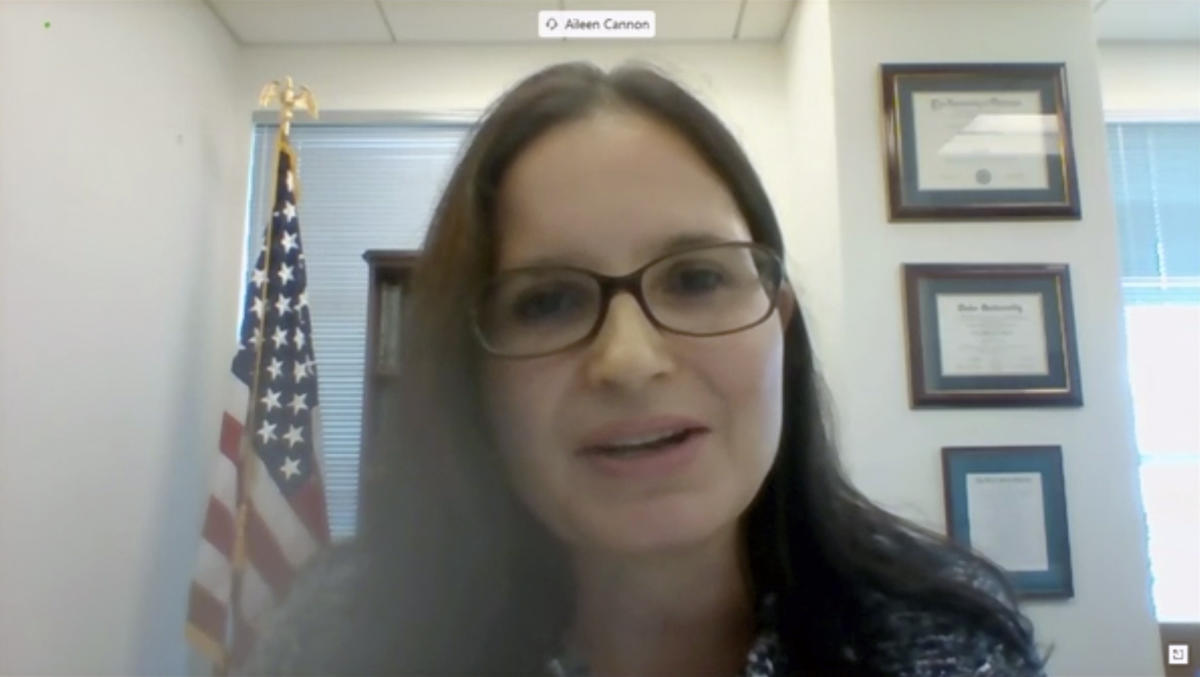During a campaign stop in September 2018, the incoming governor said Ron DeSantis explained his plans to restore the Everglades, adapt to rising sea levels and combat toxic algae blooms.
But he made no mention of climate change.
“I don’t sit in the pews of the left-wing church that is concerned with global warming,” DeSantis told a crowd of reporters. “I am a Teddy Roosevelt conservationist.”
Nearly six years into his governorship, DeSantis was praised and criticized by environmental groups. He has set aside billions of dollars for conservation efforts and waterway projects, including more than $850 million for Everglades restoration in the 2024-25 budget he signed last week. Yet he has rejected the “politicization of the weather” and discredited “the agenda of the radical green fanatics.” He has struggled with extreme weather but refused to acknowledge that human activity is causing climate change and its consequences.
Florida residents are bracing for another summer of intense heat and an “extremely active” storm season that experts say could be even more intense due to global warming. In 2023, during one of the hottest years on record, waters off the Gulf Coast reached 90 degrees. Every year, increasingly extreme storms hit the state, costing billions of dollars in damage.
Voters on both sides of the aisle are concerned. A recent poll from Florida Atlantic University found that 90% of Floridians believe climate change is happening regardless of the cause, while 40% of Florida Republicans and more than 70% of Democrats believe climate change is largely due to man is caused.
A contradictory record
During his 2018 campaign for governor, DeSantis was part of a wave of environmental tumult.
When a months-long red tide splashed the coast of Southwest Florida and fish carcasses washed up on beaches, he vowed to clean up polluted waterways. When Hurricane Michael devastated the Panhandle, he raised money for veterans affected by the storm.
DeSantis made the environment a top priority after taking office in 2019. He invested $625 million in Everglades restoration projects in his first month as governor and appointed Florida’s first Chief Resilience Officer, charged with preparing the state for rising sea levels.
“Florida is a low-lying coastal state that is prone to hurricanes and severe weather,” said Jeremy Redfern, press secretary for the governor’s office, when asked last week about DeSantis’ environmental record. “This issue is not new, but a fact of Florida’s geography and topography. As such, strengthening and strengthening our beaches, infrastructure and homes is the right focus for the state.”
Some voters and environmental groups were optimistic after DeSantis came to power, said Walter A. Rosenbaum, professor emeritus of political science at the University of Florida.
“Given that he succeeded Rick Scott, who openly opposed climate policy, many environmentalists viewed DeSantis as a relief,” Rosenbaum said.
Two days after the governor’s election, the Everglades Foundation said DeSantis’ environmental platform “marked the beginning of a new and more hopeful era for the Sunshine State.” Sierra Club Florida also praised the new governor for his commitment to water policy reform.
DeSantis has supported programs to make Florida more resilient to the impacts of climate change, including legislation to address rising sea levels and coastal flooding and $1.2 billion for emergency response and preparedness in the 2024-2025 budget.
Yet in 2022, Florida was the only state to refuse millions in federal funding to reduce tailpipe emissions. And in 2023, DeSantis vetoed a popular bipartisan bill that would have made it easier for officials to choose electric cars for government fleets. He also denied $346 million from Washington, which would have helped Florida residents make their homes more energy efficient.
Rosenbaum said DeSantis doubled down on his position on climate change during his short presidency. His plan for the economy would have reduced regulations and licensing requirements for the energy sector. He vowed to “roll back the federal government’s attempt to force people to buy electric vehicles.”
That platform, Rosenbaum said, “appealed to the Republican base he was trying to cultivate.”
Some environmental groups have remained staunch supporters of DeSantis, pointing out things like his focus on the Everglades.
“The money that has poured in since January 2019 has been incredible,” Eric Eikenberg, CEO of the Everglades Foundation, said in an interview. “We are very happy to be working with him.”
Eikenberg cited the governor’s commitment to build a reservoir south of Lake Okeechobee. He said the project aims to rehydrate the Everglades, reduce water pollution and help protect coastal communities during tropical storms.
“When it’s over,” Eikenberg said, “it will be a benefit to the state’s overall environment.”
In recent weeks, DeSantis has faced criticism for a bill he signed that removes most mentions of climate change from Florida statutes.
The law, along with two other bills DeSantis signed that day, banned offshore wind turbines from Florida waters, removed requirements for government agencies to purchase climate-friendly products and prevented municipalities from limiting the types of fuel used in appliances such as gas stoves.
Brooke Alexander-Goss, an organizing manager for the Florida chapter of the Sierra Club, said of the bill: “Removing language about climate change further deepens the rabbit hole that DeSantis and some of his supporters like to go down that this is some kind of hoax is. .” The Sierra Club gave DeSantis a D-minus grade in 2020 and 2022 for his work on climate policy.
“He likes the optics of saying, ‘Look at all these things I’m doing to make Florida more resilient,’” she said. “But he refuses to acknowledge the root cause here, which is climate change.”







